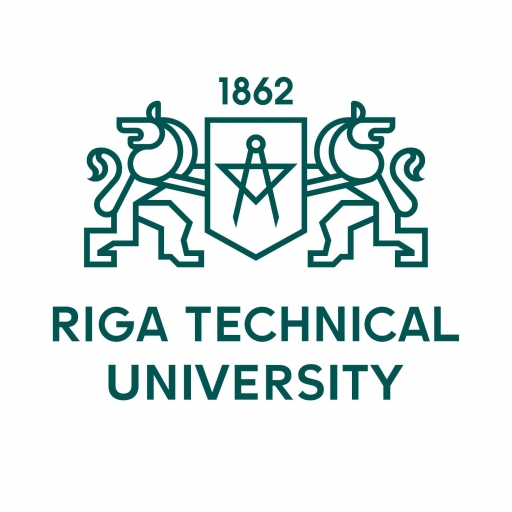The Bachelor of Engineering at UNSW Sydney is a comprehensive and rigorous program designed to prepare students for a successful career in engineering across a wide range of disciplines. This program offers a solid foundation in fundamental engineering principles, combined with specialised coursework tailored to students' chosen fields, including civil, mechanical, electrical, computer, and software engineering. The curriculum is structured to develop students' technical expertise, problem-solving abilities, and innovative thinking, ensuring they are well-equipped to address complex real-world challenges. Throughout their studies, students gain practical experience through laboratory work, project-based learning, and industry placements, enhancing their understanding of engineering practices in contemporary settings. UNSW's strong industry links provide students with valuable networking opportunities and exposure to current industry standards and practices. The program emphasizes teamwork, communication skills, and ethical considerations vital to responsible engineering practice. By integrating theoretical knowledge with practical applications, students graduate as adaptable professionals capable of contributing to technological advancement and sustainable development. The Bachelor of Engineering at UNSW Sydney is accredited by Engineers Australia, ensuring its graduates meet the national standards for professional engineering practice. Graduates are prepared for diverse career paths in design, research, consulting, and management within the engineering sector or for further postgraduate study. The university's state-of-the-art facilities, experienced faculty, and vibrant student community offer an environment conducive to academic excellence and personal growth. Whether students aspire to innovate in engineering technology, lead multidisciplinary projects, or pursue research, the program provides a robust foundation to achieve those goals. With a commitment to fostering sustainability, innovation, and industry relevance, the Bachelor of Engineering at UNSW Sydney equips students to make meaningful contributions to society and the global engineering landscape.
The flows for Electric Engineering and Telecommunications at both year Master's program are professionally accredited by Engineers Australia. The streams Civil Engineering, Environmental Engineering and Mechanical Engineering have been provisionally accredited by Engineers Australia.
Entry in to this Master's program requires the conclusion of a 4-year non-accredited (under the Washington Accord) Bachelor of Engineering degree (or equivalent) in a cognate discipline. Otherwise, eligible applicants include people who hold a 3-year Engineering Science degree in a cognate discipline, at least comparable to the initial three years of an Engineering degree accredited underneath the Washington accord. A minimum overall average of 65%equal, over the whole period of the qualifying Bachelor's level is also required.
The financing options for the Engineering programs at UNSW Sydney are designed to support both domestic and international students throughout their academic journey. Domestic students may access a range of government-funded financial aid packages, including Commonwealth Supported Places (CSPs), which significantly reduce the tuition fees for eligible applicants. Additionally, students can apply for various government scholarships, grants, and loans such as the HECS-HELP and FEE-HELP schemes, which assist in covering tuition costs and are repayable through the Australian taxation system once the student’s income reaches a specified threshold. UNSW also offers numerous merit-based scholarships that recognize academic excellence, leadership qualities, and commitment to community service. These scholarships can provide full or partial tuition fee waivers, living allowances, and research funding support.
International students opting for Engineering degrees at UNSW are required to pay the full international tuition fees, which are set annually and vary depending on the specific program of study. To assist with financing, UNSW provides a selection of scholarships exclusively for international students, which can cover tuition fees or provide stipend support. Many international students also secure external funding through home country government scholarships, private foundations, and international organizations. UNSW offers financial guidance through its dedicated Student Support Office, advising students on available funding options, scholarship application processes, and budgeting strategies to manage living expenses, accommodation costs, textbooks, and other study-related expenses.
The university encourages students to plan their finances carefully and provides resources such as financial planning workshops, budgeting tools, and access to financial advisors. For students experiencing financial hardship, UNSW offers emergency grants and hardship support services to ensure that their educational journey remains uninterrupted. Many students also supplement their income through part-time work opportunities available on campus and within Sydney, which adhere to visa regulations for international students. Overall, the financing landscape for engineering students at UNSW Sydney is comprehensive, combining government support, university scholarships, external funding, and employment opportunities to help students afford their education and successfully complete their engineering degrees.
The Bachelor of Engineering at UNSW Sydney is a comprehensive undergraduate program designed to prepare students for a diverse and evolving engineering industry. It offers a robust foundation in engineering principles, combined with specialized knowledge across various disciplines such as civil, mechanical, electrical, software, and biomedical engineering. The program emphasizes both theoretical understanding and practical experience, integrating coursework with extensive laboratory work, industry projects, and internships. Students are encouraged to develop their problem-solving skills, innovate, and adapt to technological advances. UNSW's engineering curriculum is aligned with industry needs, ensuring graduates are equipped with relevant skills and knowledge for employment or further study. The program includes opportunities for interdisciplinary collaboration, research, and participation in industry-sponsored projects, fostering a comprehensive understanding of engineering challenges in real-world contexts. It also emphasizes sustainable practices, ethical considerations, and the social impacts of engineering solutions. Students benefit from access to state-of-the-art laboratories, design studios, and expert faculty members engaged in cutting-edge research. UNSW Sydney's engineering programs are accredited by Engineers Australia, ensuring international recognition and professional status for graduates. The program typically spans four years of full-time study, with options for specializations, electives, and overseas exchange programs to enrich the student experience. Overall, the Bachelor of Engineering at UNSW Sydney aims to produce versatile, innovative, and ethically responsible engineers ready to contribute to technological advancement and societal development globally.




